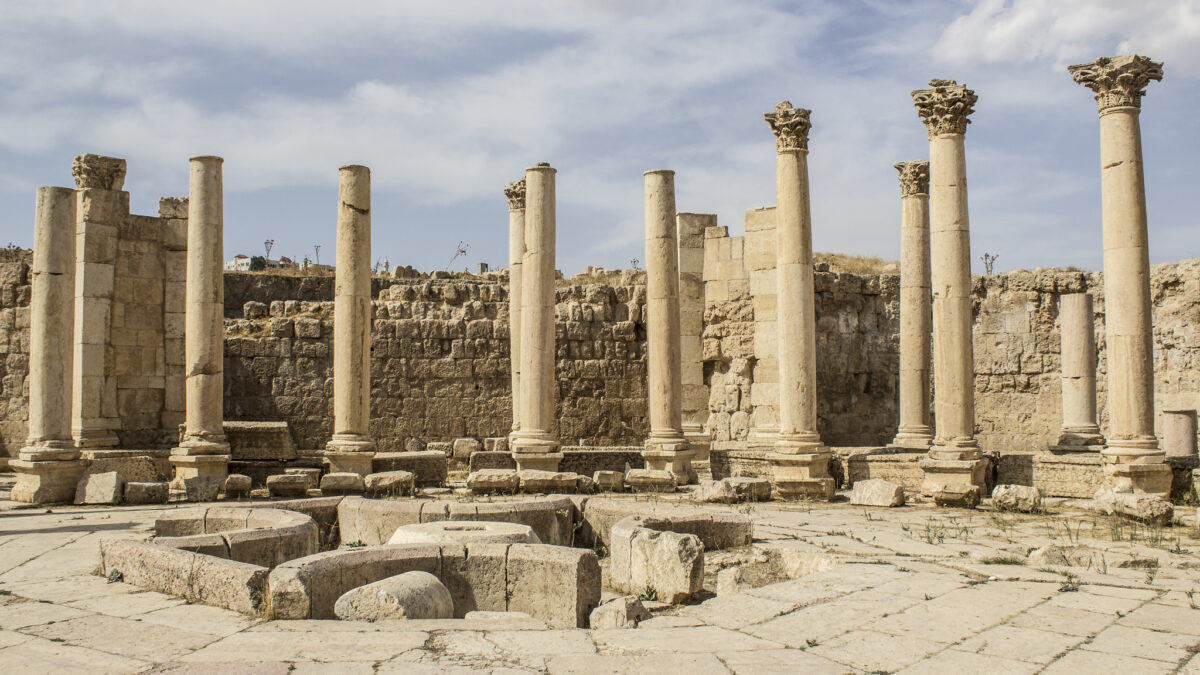
Few doubt that New York Gov. Andrew Cuomo’s policy of sending COVID-19 patients into nursing homes led to a huge spike in deaths of the elderly. The puzzle is that those tragic results were both predictable and preventable. There were warnings right from the outset. Several writers suggest Cuomo’s directive seemed to intentionally de-value those lives.
Hence, a much bigger question looms over the scandal than what it means for Cuomo’s career: What happens when an entrenched ruling class devalues human life in general, and the lives of the elderly in particular? In general, Cuomo and other self-styled progressives routinely press for policies that devalue the lives of the weak and infirm.
For example, across New York, the same policy that spread COVID-19 deaths among nursing home patients disproportionately killed patients in homes for the developmentally disabled. Also, Cuomo recently signed into law the right to destroy pre-born people, up until the end of pregnancy, and celebrated that leap to infanticide by lighting up the Empire State Building in pink.
But let’s focus here specifically on the elderly demographic to understand what’s at stake for our society if we continue to devalue their lives.
The Erasure of Cultural Memory
I think many of us sense that Cuomo’s policies reflect a growing contempt for the lives of the elderly in American society. We can feel it in the push for a state monopoly on medicine that is certain to result in rationing health care for seniors. It’s also felt in the promotion of assisted suicide and euthanasia. We can even sense it in the toppling of monuments and revisionist history taught in schools.
In this context, it’s easy to forget that the elderly provide us a vital anchor to cultural memory: deep knowledge of traditions, language, ideas, histories, songs, rituals, and more that bind us together as a free and functioning society.
Consider bioethicist Ezekiel Emanuel’s 2014 Atlantic essay that essentially argues we should check out of life at age 75. He reasons with charts, graphs, and statistics that our productivity declines on average when we reach that point.
Emanuel, who was recently named a member of the Biden administration’s COVID-19 Advisory Board, also speculated that at 75 you should feel you’ve gone as far as you can go, certainly farther than those who died younger. He wrote that aging “transforms how others see us,” i.e., no longer as vibrant, but as “feeble, ineffectual, even pathetic.”
Emanuel’s article illustrates that our society has lost a lot of respect for an elder’s life experience and wisdom. Many traditional and tribal societies instead venerate the aged. Even in mid-20th-century America, children showed respect by referring to all elders with a title, never by a first name.
But the greatest fallout of marginalizing the aged is the erosion of cultural memory. By annexing our elders, we erase traditions that bind us together in a vibrant and functioning society. The irony is that by rejecting this source of cultural memory, we put ourselves into a state of collective dementia.
We Carry History Inside Us
Few appreciate the link between the oldest generations and the cultural memory they carry. Each human being carries a historical record simply by being a living person who interacts in time and place. As we age, we accumulate a sort of institutional memory, a schema of knowledge that younger generations lack.
Contrary to media-induced tropes, the vast majority of seniors are alert and do not have dementia. According to the Alzheimer’s Association, one in ten people older than 65 have Alzheimer’s dementia. This is to say that 90 percent of everyone between 65 and 100-plus is free of it.
In fact, rates of dementia are declining. But you wouldn’t know it because the media focuses on the projected increases in numbers of the aged with dementia. Such alarmist reporting focuses on the health-care burdens, suggesting rationing. It also creates the false perception that dementia is inevitable with age, which reinforces a view of seniors as “ineffectual, even pathetic,” to use Emanuel’s choice of words.
Perspectives may differ, but we are all moored in our common humanity and our common culture. Cultural memory stays alive best through those with the longest memories. If we let them offer it, we gain a sense of stability, of our place in time, in our culture, and, yes, in the universe.
I’m extremely grateful my maternal grandfather left an extensive written record of his experiences as a survivor of the Armenian genocide: the deportations, the people he met along the way, his treks through Turkey and Syria, his descriptions of relatives, including his own grandparents, my ancestors. I now have hundreds of questions for him! And nobody else can answer those questions. He took those answers to the grave.
You may ask: What would those conversations have produced, other than some interesting anecdotes? My answer is that they would have planted in me a deeper knowledge of my roots. They would have more tightly knit together an understanding of my place in time, and through interactions with others, a greater sense of cultural memory of all. I’d pass the stories down to my children and their children. The huge success of Alex Haley’s 1976 bestseller, “Roots” reveals just how important this is, especially for those cut off from their traditions and relationships by the ravages of slavery.
The ripple effects of such knowledge are impossible to measure. But they are vast. One needn’t live through slavery or genocide to pass along insights that have a huge effect. Elders who share memories of a peaceful and happy past enrich others with ideas about the best life has to offer: how to succeed, accounts of neighborly kindness, perhaps a community barn raising, good business practices, traditional food, songs, and rituals that bind people together and create stability.
To be effective and lasting, such sharing must continuously happen through personal contact. Nothing else will do.
Cultural Forgetfulness Precedes Cultural Collapse
The late urbanist Jane Jacobs warned in her 2004 book, “Dark Age Ahead,” that “culture resides mainly in people’s heads and in the examples people set, and is subject therefore to natural mortality.” She added: “everything is connected with everything else, not only in its consequences but in its causes.”
Jacobs feared we are entering a Dark Age when “the mass amnesia of survivors becomes permanent and profound. The previous way of life slides into an abyss of forgetfulness, almost as decisively as if it had not existed.” She called forgetfulness “the fifth horseman of the apocalypse.” She warned against putting faith in an “information age.” Digital records don’t give permanence to a culture because “cultures live through word of mouth and example.”
Perhaps the ultimate example is the Jewish tradition of gathering annually for the Passover Seder in which the story of the exodus from slavery in Egypt is shared through symbolic foods, readings, and rituals. It must be personal.
Likewise, many argue that it was primarily grandmothers who kept the church in Russia alive through 75 years of communism that destroyed church buildings and arrested thousands of clergy. Quietly and diligently, they passed the faith down through their example of praying, of keeping icon corners in their homes, and having grandchildren baptized.
Soviet authorities often viewed the old “babushkas” as a dying breed that weren’t too much of a threat. Today’s global elites, however, don’t seem as willing to dismiss the power of such human connection and cultural memory.
People Are Not Numbers
Emanuel’s Atlantic article should remind us that if everyone today were age 75 or younger, we would have no more veterans of the Korean War or World War II among us, and, soon enough, no Vietnam vets. Few among us would be able to recall the assassination of President Kennedy or the Cold War.
Fewer would be left who comprehend the principles of America’s founding, since most today under age 50 have experienced the severe erosion of those principles in American schooling. Rarer still would be those who understand the values of self-reliance and thrift that Depression survivors learned. The list goes on.
But I fear our ruling elites view that as a good thing. Consider how Big Tech and Big Media along with Big Government insist on abject conformity and debilitating censorship. They know they can’t “reset” us into a moldable, utopian society if people can easily tap into institutional memories of the living and have real conversations. That would collapse the utopian illusion.
So one way to wipe out such unpredictable conversation and curiosity is to socially cancel those who have the longest memories. With this more utilitarian mindset, people are only valued according to what they can materially produce and say only what the authorities want them to say.
That utilitarian mindset is de-humanizing by nature. I’m sure Cuomo doesn’t see himself that way. But his nursing home policy is a stark reminder of the growing contempt for the aged, for the lives of those who can show us a better future by opening a clearer window to the past.
We must adopt a more holistic mindset that sees people in their wholeness. That’s the only way to preserve cultural memory. It means respecting the human lifespan from its vulnerable beginning to its vulnerable end.









